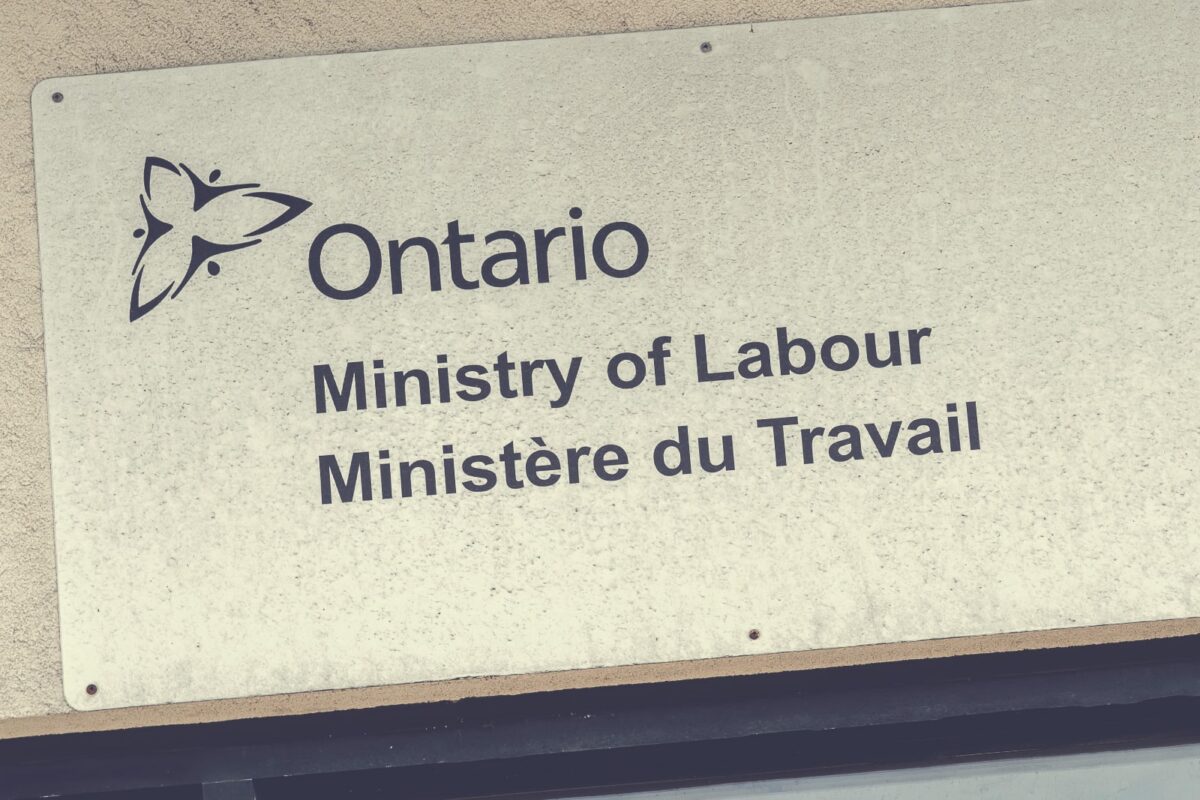As an employer, receiving a notice of investigation from the Ministry of Labour, Immigration, Training and Skills Development (MOL) can be a stressful and damaging situation. The MOL has the authority to investigate any workplace in Ontario to ensure compliance with employment standards, occupational health and safety regulations, and other workplace laws. It often comes with severe consequences.
This article will focus on the MOL investigations under the Employment Standards Act, 2000 (ESA) and the Occupational Health and Safety Act (OHSA).
What leads to MOL investigations?
The MOL conducts investigations for a variety of reasons, including:
- Complaints: If an employee files a complaint about the workplace, the MOL will launch an investigation into the complaint. For example, the MOL may investigate a complaint related to the failure to pay overtime under the ESA. Another example is when the MOL investigates a complaint of an unsafe work environment under the OHSA. It is worth noting that a complaint related to workplace violence and harassment, such as for the failure of the employer to start an appropriate investigation, can also lead to a MOL investigation under the OHSA.
- Accidents: Under the OHSA, employers have an obligation to notify the MOL when a critical injury or a fatality occurs in their workplace. The MOL will investigate the reported incident. Once the incident is reported, an inspector will be dispatched immediately to the workplace. The inspector will investigate to determine what happened and to ensure that similar incidents do not occur.
- Random inspections: Under both the ESA and the OHSA, the MOL has the power to conduct random inspections of workplaces to ensure compliance with employment standards and workplace safety requirements without a warrant.
- Targeted inspections: The MOL may target specific industries or workplaces that have a history of non-compliance with the OHSA. The list of targeted industries changes from time to time. Additionally, some MOL investigations may lead to changes in the list. If a hazard is identified during the investigation that may affect one particular industry, the MOL may issue a “Hazard Alert.” The MOL will distribute it through various networks, which makes that specific industry fall onto the list and subject to targeted inspections.
Consequences of MOL Investigations
Depending on the history of the employer, the consequences of not responding or not handling an investigation properly can be severe. For instance, the MOL has the authority to issue compliance orders and fines. The OHSA also authorizes the MOL to issue “Stop Work” Orders. In some cases, the MOL may also lay criminal charges.
Compliance orders may require specific actions to bring the workplace back into legal compliance. Violating a compliance order can result in significant fines and collateral fees. For example, if an employer owes overtime wages to employees, the MOL may issue an order to pay the wages owed plus a maximum of 10% administrative costs. On top of the extra 10% administrative costs, employers may have to pay a penalty of up to $1,000 for each employee and further fees for the collection of money owed under a MOL order.
During the investigation under the OHSA, an inspector can issue a “Stop Work” Order, which halts all work at the site until the inspector determines that all workers are safe.
Criminal charges can have even more severe consequences. Under the ESA, a conviction can result in a fine of up to $500,000 for an employer. Additionally, its directors may face a maximum fine of $50,000 and jail time upon conviction. In 2022, Bill 88 made significant amendments to the OHSA, including increasing the amount of a fine against a convicted director or officer from $100,000 to $1.5 million, which matches the maximum fine applicable to a corporation. OHSA s.66(2.1) provides that convicted directors or officers may also be sentenced to imprisonment of up to 12 months. While maximum fines may be rare, employers need to be aware of the potential consequences of a failure to comply.
Act Immediately and Properly
If you receive a notice of investigation from the MOL, it is crucial to act immediately to avoid those serious consequences. It is important to cooperate fully with investigations. However, the legal processes involved in MOL investigations can be complicated. As such, seeking advice from legal counsel in the early stages is advisable.
Experienced counsel can save you time and money by navigating the more complex processes, including responding to or providing guidance on requests for information and inquiries, negotiating with MOL officials, and for any legal proceedings that may arise.
Additionally, for the more complex matters, retaining a lawyer may be the most cost effective and efficient way of dealing with the MOL. Whatever path an employer chooses, demonstrating to the MOL that the employer recognizes the serious nature of an investigation, is cooperative, and is committed to ensuring compliance with workplace laws and regulations is critical for building trust and credibility with the MOL and, potentially, a more favorable outcome.
Prevention is Better than Cure
It is equally essential to prevent MOL investigations. As an employer, knowing your rights and obligations under workplace laws, and whether your business falls into the MOL category of targeted industries, is vital. A lawyer with expertise can help with a workplace audit to ensure compliance and prevent or minimize the risk of MOL investigations, allowing you to focus on your business.
If you are dealing with a MOL investigation or you would like to avoid one in the future, contact Hum Law today to speak with an expert about the most efficient and cost-effective approach to deal with your situation at (416)214-2329 or Complete our Free Assessment Form Here.



[…] a penalty under ss.113 and 125.2 of the ESA. For some infractions or multiple infractions, the employer may also be prosecuted and fined up to $500,000 or even imprisoned under s.132 of the […]
Comments are closed.